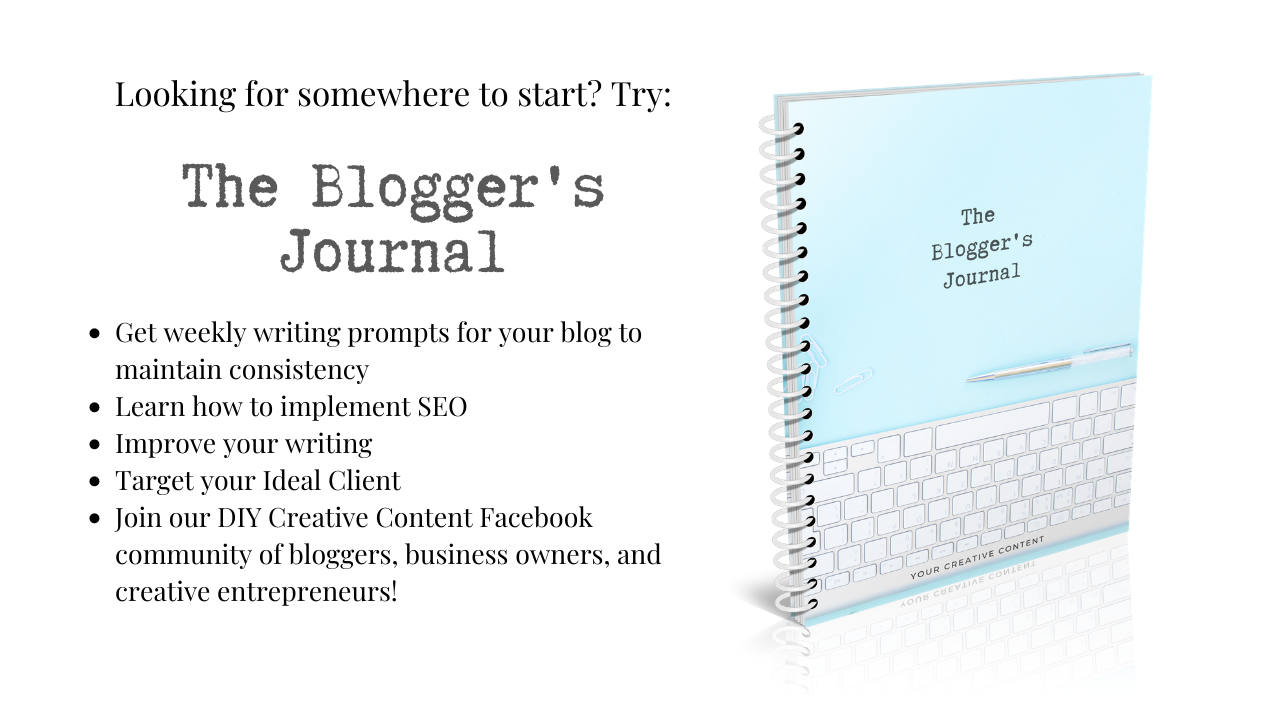How I Became a Freelance Writer
We all sat down on the rough carpet filled with bright-colored geometric squares. I took a seat in the middle, waiting for Mrs. McCarrey to open up our newest read-aloud book. Little did I know that this is the day I would decide I wanted to be a freelance writer.
Well-- not a freelance writer, per se. I mean, in 1998, I don't think blogs even existed. No, at that time I wanted to be an author (I still do. Book title still pending). But it was that day, the day my 3rd-grade teacher read me a terrific story, that I knew I was meant to tell stories for a living.
Freelance Writer Advice: The Good, The Bad, and the Worst
It seems that just about anyone can call themselves a writer these days. While I think it's great that so many people can build their own businesses by becoming self-taught and by hustling hard, I do think that this creates a problem.
How, you ask?
Because a lot of freelance writing advice is bad.
Some people will have a blog go viral or have a handful of success stories and then they're ready to sell their "secret" at the highest price. I've personally never understood that tactic. The ones where people will go on and on about their story without actually telling you what you can do to get the same results… unless you pay for it, of course.
I successfully became a freelance writer because I have been a writer since I was a kid. I've been practicing for over 20 years and I've dedicated time, money, and clusters of hair-pulled stress balls into learning the different facets of becoming a professional writer.
That means I've tried and failed at different niches, charged way too little, and have consequently been taken for granted.
But I've also learned SEO, the business of freelance writing, and I've built a portfolio to back up my expertise.
Just so you have an idea of where I come from, let me tell you all about how I became a freelance writer.
Oh, by the way, my name is Tiffani. I probably should have started with that.
RELATED: Weekly Writing Prompts For Your Blog
Step 1: I Started Small
I started copywriting for small companies around 2014. This was back when brochures and snail mail marketing was still popular. I was still going to college on an off, but it was more out of passion than necessity. At the time, my plan was to get a day job at a publishing house until I became the Next Great American Author.
In 2015, I started working for a small book publisher as a substantive editor. That same year, I got into digital journalism for a large scale entertainment publication. My writing was seen by millions, and I got to write about Harry Potter, Marvel, and a bunch of other nerdy things that I love.
In my first year at that company, we didn't even get paid. While this tactic is still being used by a few less reputable publications (ahem, Medium), it’s now frowned upon within the industry. But back then, I was new and naive and the promise of “exposure” was intriguing... so I just went with it.
From 2016-2017 (before the publication disbanded), I finally began to get paid. I expanded into a few other entertainment publications, but I was being paid pennies for my 500-1,000 words on fandom culture.
That's when I realized that none of these publications will ever be able to sustain me full-time.
Step 2 On Becoming a Freelance Writer: I Earned My Degree
After more years than I care to admit, walking across the UCF graduation stage with a Bachelor's Degree in English and Creative Writing should have been exciting for me. But in 2016, writing opportunities were still few and far between. For the next 3 years, I explored a few new ways to make a living as a writer.
I know what you’re asking yourself now: do I need to get a degree to become a freelance writer?
No.
But you do need to learn to write... and do it well. So many people think that conversational writing will get them by and help them succeed because it's popular and "relatable." However, if you can't even write a legible business email or blog, you're setting yourself up for failure.
And honestly, you're making the rest of us look bad.
RELATED: The Blogger’s Journal
Step 3: I Built My Portfolio
So, so far my portfolio listed me as a fiction book editor, an entertainment journalist, and a freelance copywriter. Even though it was all over the place, learning the different avenues of writing helped me figure out what I liked and what I was best at.
My most out-of-left-field job was working as an SEO blog writer for a social media company. It was a brief stint because it was awful. I got paid $6 per 500 words and I was expected to write 40 blogs a week.
And that was part-time.
But it was here (and through my own research) that I learned social media management and how to integrate various types of content across multiple platforms. That's when I found my niche and my passion, and I learned how to take on clients from there.
And I expanded my business.
Step 4: I Learned My Value
So, freelance journalism wasn't paying the bills and I didn't want to edit books for other people.
That's when I started blog writing for clients through freelance platforms like Fiverr and Upwork. And believe it or not, I started to build up a pretty hefty clientele.
I received literally nothing but 5 stars from my clients and I'd say about 90% of them came back for more.
The problem was, Fiverr clients were looking for a one-time blog (which is a bad move, and it was hard to convince them otherwise) and both platforms took 20% of my commission. On top of that, I found that clients buying my $25 500-word blogs expected more for less money. And I knew that I was over-qualified.
If you have been writing for a couple of years, you have a portfolio, or you have a degree in writing, do yourself a favor and research how to price your writing services. It’s too much to go into here, but if you have experience, you should not be charging anything less than $50 per 500 words.
I knew I needed to find serious clients. One's who recognized the importance of good, quality writing (not all Fiverr writers are winners), SEO, and the power of full-fledged content creation.
It was then that I decided to develop my own company, Your Creative Content.
Step 5: I Built My Own Website
One thing I left out is that around 2016, I built my very first website. It was a "just for fun" blog, but I quickly fell in love with it.
I love learning new things and figuring out how to build a Wordpress website gave me plenty of information to absorb: coding, HTML, affiliate marketing, and social integration... just to name a few.
Thankfully, now there are plenty of drag and drop website builders (I'm talkin' Wix and SquareSpace) that make it really easy for anyone to build a website to showcase their portfolio. The website you're on now is a Squarespace. I’ve made websites on Wordpress, Shopify, Wix, and even wordpress.com. If you can’t hire a website designer and you’re looking for something easy to set up that also looks good…. Squarespace is 100% the platform for you. I wish I got here sooner.
You don’t want your blog on a third-party platform like Medium. People who hire you for your writing won’t care that another website earned you 5,000 views. But you know what is impressive to your potential clients?
Your own website.
Your Creative Content, while fairly new, is backed by my 7 years of writing experience, passion, and expertise.
That's not something a lot of freelancers or social media managers can say these days. I didn't just up and decide to do this one day. It's something I've always been doing, but it did take me a while to find my niche. It took even longer for clients to recognize my worth.
Disclaimer: Actions taken from clicking on links may yield commission for the site. All content and photos are copyright Creative Content unless otherwise noted. Sponsored content is clearly disclosed within the post. Thank you for your support and I hope these services help you!
To wrap it up, here's my advice on how to become a freelance writer:
Get experience. "Practice makes perfect" is a cliche that will never grow old.
Start on platforms like Fiverr and Upwork until you build up your portfolio and can take the leap to full-time
Make your own website where you can host your own blogs, get email leads, and connect with your ideal client.
Charge accordingly.
And for anyone looking to hire a freelance writer, keep this in mind:
You get what you pay for. Getting a blog off of Fiverr for $5 means you're getting recycled content and it is literally doing nothing for your SEO. Nothing.
Don't buy one blog and call it quits. You're wasting the writer's time and your own money.
Listen to your writer. If they offer you content advice, take it. If you're working with a good writer, they've done their research. Trust me, we know what we're doing.



